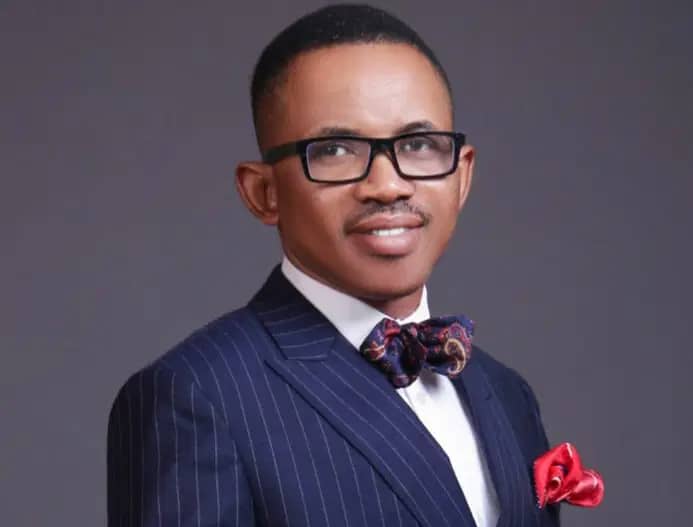Setting the Record Straight: A Rebuttal to Wande T Ajayi’s Misconceptions in Kayode Ajulo: The Irony of Power
Dr. Kayode Ajulo SAN, is a humble-extraordinary persona whose journey epitomizes resilience and determination. As a self-made man, he has surmounted considerable challenges while remaining steadfastly connected to his roots. His law firm, esteemed in both Maitama and Asokoro, has achieved remarkable success in litigation, corporate arbitration and fund recovery. Throughout his distinguished career, he has consistently prioritized the welfare of the vulnerable and championed the cause of social justice.
Ajulo boasts a commendable history of community service; he became the youngest honored Chief, the Bamofinlewe in Akure during Governor Agagu’s administration and served as Chairman of the Ondo State Radiovision Corporation under Governor Mimiko. His courageous decision to challenge the very Mimiko government he served, over the reduction of workers’ salaries exemplifies his steadfast commitment to labor’s rights and fairness. As National Secretary of the ruling Labour Party, he held the highest Political office in the state, showcasing his influence and dedication to the well-being of the populace.
With a profound passion for youth empowerment, Ajulo has mentored numerous aspiring lawyers and other professionals as he has been supporting various youth initiatives.
His relationship with the Akoko Youth Groups are well-established, as they frequently seek his wisdom and resources at his private Chambers, the Castle of Law.
Recently, his inquiries regarding the legitimacy of factional Akoko Youth Forum reflect a responsible and discerning approach to ensuring that those he supports are genuine representatives of their community. The disruption of the Minstry of Justice by known individuals claiming to represent the forum raises significant questions about their intentions, particularly in light of a minister’s involvement.
Ajulo stands not only as a respected lawyer but also as a decorated human rights activist, recognized as the first in Ondo State to receive national honor as a private citizen for his principled activism and unwavering dedication to justice.
In addressing Àjàyí’s critique, it is imperative to consider the context of Ajulo’s actions. Allegations of threats or the misuse of state authority against the so-called Akoko youths warrant careful and responsible examination. The office that was disrupted is not merely Kayode Ajulo’s personal law chambers but the office of the Attorney General of Ondo State. The staff who experienced trauma, including the Solicitor General—the elderly lady seen pleading in the video, the Director of Finance & Administration, also seen in the video and other helpless junior staffers—are public servants, not Personal staff of Ajulo. The decision to involve the DSS was taken with thoughtful consideration, reflecting the need to maintain order and address serious concerns raised by those claiming to represent the Akoko Youth Forum.
Dr. Kayode Ajulo’s presence at the students’ protest on March 27, 2025, was grossly misrepresented by Wande Ajayi, who misconstrued his actions as an attempt to intimidate the students. However, a closer examination of the events reveals that Dr. Ajulo’s role that day was, infact, centered on fostering constructive dialogue and finding meaningful resolutions to the issues raised by the protesting students.
Contrary to Ajayi’s claims, Dr. Ajulo’s actions were geared towards facilitating open communication, preventing conflict, and ensuring a peaceful resolution to the protest. His willingness to engage with the protesters, even joining them in singing, demonstrates his solidarity with their cause and his commitment to understanding their concerns.
Furthermore, Dr. Ajulo’s provision of logistics support to the protesting students’ leaders underscores his dedication to their welfare and well-being.
It is essential to recognize Dr. Ajulo’s long-standing dedication to social justice and human rights. As a renowned lawyer and human rights activist, he has consistently advocated for the vulnerable, championed labor rights and fairness, and worked tirelessly to promote the well-being of marginalized communities.
Dr. Ajulo’s presence at the protest was not an isolated incident but rather a continuation of his life’s work. His commitment to justice, human rights, and the welfare of all individuals is unwavering.
Moreover, Àjàyí’s reminder that “no seat is permanent in Nigeria’s politics” resonates deeply.
However, Ajulo has made it abundantly clear from the outset that he does not seek a political career in the state and has even offered to resign, given that he has many other addresses of pursuits. He has indeed left the State and is presently out of the country. It is only those who view politics as their lifeblood who would need such a reminder; those peddling false credentials without any accomplishments beyond politics may justifiably fear life after their political tenure.
In conclusion, while Wándé T. Àjàyí raises significant points regarding power dynamics and accountability, it is equally essential to acknowledge some enduring commitment to justice and community empowerment. The journey that reflects the formidable challenges faced by those striving to balance advocacy with the responsibilities of public office. Rather than perceiving Ajulo’s recent actions as a departure from his principles, we should consider them within the intricate tapestry of leadership and governance in Nigeria, recognizing the difficult choices that leaders must navigate in their pursuit of a just society.
E-sign
Akoko Youth Progressive Vanguard.
31/03/2025



